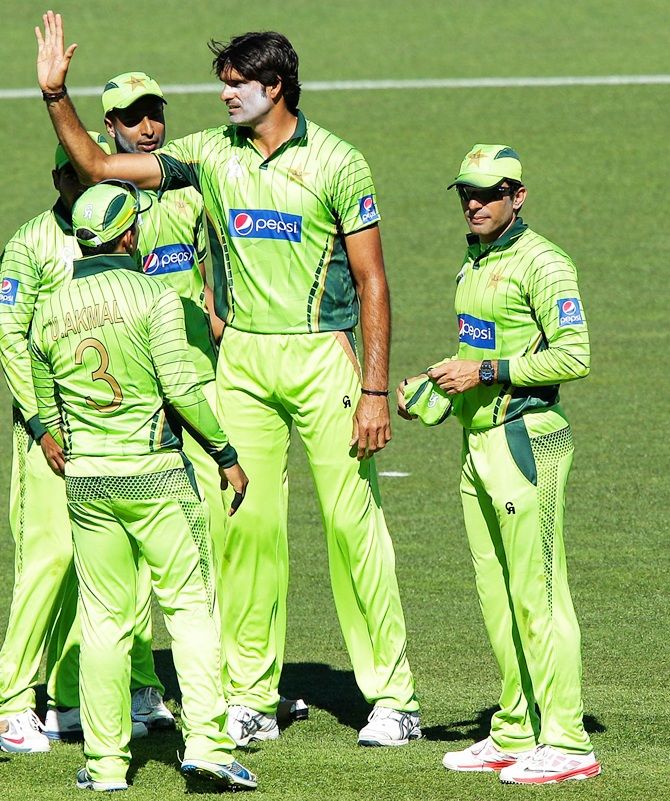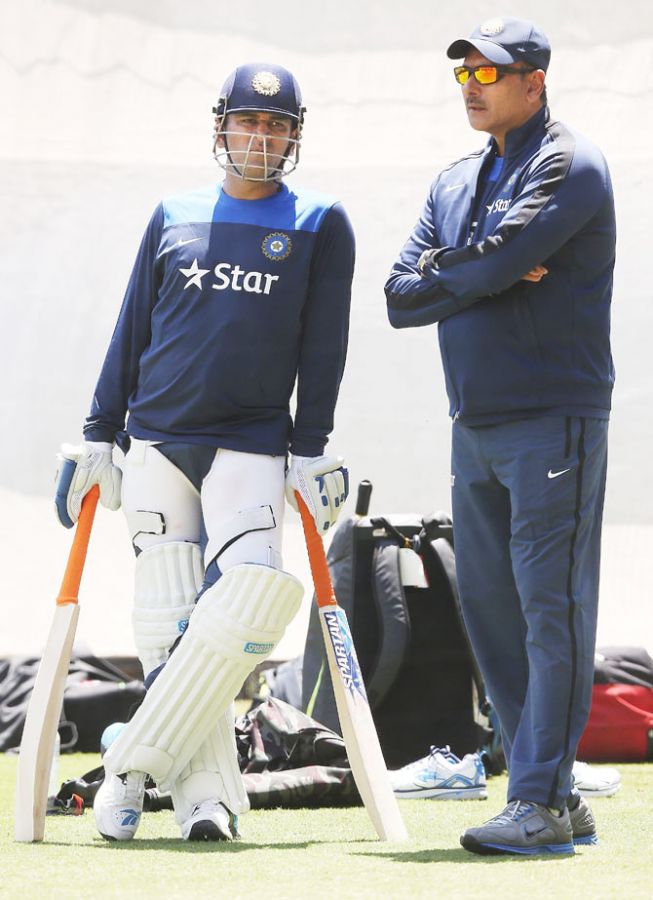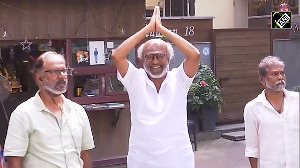The Indian team used a unique method to tackle Pakistan's Mohammad Irfan, who at seven feet one inch, is the tallest cricketer in the world. Assistant coach Sanjay Bangar stood on a bench with the throw-down equipment and then stepped on another to throw balls from a good height.

ICC events in recent years have witnessed the Indian cricket team devising unique ways of training. It was no different this time around with the side employing a unique 'two-bench' theory to counter the pace and bounce of Pakistan’s bowlers in its World Cup opener.
During the last World T20 in Bangladesh, India’s bowlers had sent down deliveries to a 10-feet tall batting mannequin to hone their skills in channel bowling. This time the batsmen devised a unique throw-down session using two small benches.
The idea behind the innovation is to get well-equipped to counter the threat that the seven foot tall Pakistani paceman Mohammed Irfan could pose.
After Virat Kohli practised at the main nets, he went to the corner of the St Peter's Main Oval ground to get some throw-downs from team's specialist Raghavendra.
The throw-down expert was told to dig one delivery short, which Kohli would immediately move back and across to pull it effortlessly. It was followed by a fuller throw-down to counter the pitched-up delivery.
Once he had taken sufficient throw-downs, Kohli and, later, Ajinkya Rahane went to the adjacent net where two small benches of around 20 inch in height were kept side by side.
Assistant coach Sanjay Bangar stood on one of the benches with the throw-down equipment and then stepped on the other to throw balls from a good height.
The logic behind such a practice is to get an idea of steep bounce that Irfan might generate from just short of good length.
Bangar, standing on the bench, made him send down the deliveries from close to 10 feet (keeping the huge arm action of throw-downs), which will be a feet more than the height from which Irfan is expected to deliver.
- The World Cup, as never before on Rediff.com
It was Kohli, who spent maximum time at the nets and batted more than an hour in the two nets put together. Both Duncan Fletcher and team director Ravi Shastri kept a close eye as Kohli batted with all concentration in the world.
The Indian practice session can be segregated into specific areas that players concentrated on.

Skipper Mahendra Singh Dhoni arrived an hour into the session as he had taken a morning flight from Melbourne to reach Adelaide.
Dhoni batted mostly against slow bowlers like Ravichandran Ashwin, Axar Patel, Ravindra Jadeja and some young boys from the South Australian High Performance Centre.
The fielding session, under R Sridhar, also had its own unique touch to it.
Sridhar made the trio of Ashwin, Mohammed Shami and Stuart Binny throw from the deep. The idea was to judge how quickly they reach the ball and to have a perfect pick-up and throw.
"I want to see the power guys," Sridhar shouted, as Shami ran for the ball.
Later Sridhar had a 'position specific session' with Suresh Raina and Shikhar Dhawan.
Raina is expected to field at either point or cover point. Accordingly an imaginary fielding set-up was done with Sridhar playing the cut shot – either square cut or back cut and Raina was diving on both sides to stop the balls. The same drill was repeated for Dhawan.
The other interesting aspect was a long chat that Shastri had with Dhoni.












 © 2025 Rediff.com -
© 2025 Rediff.com -